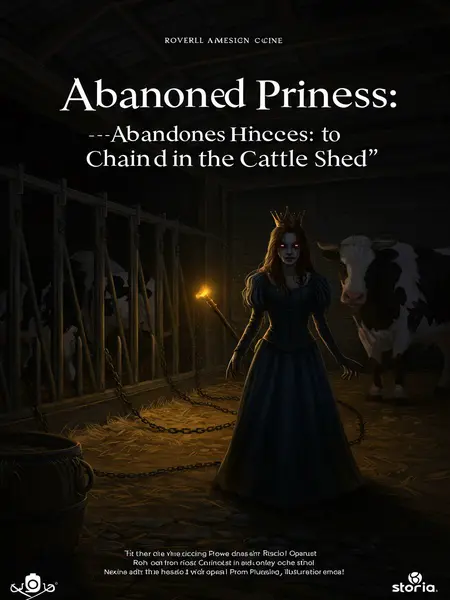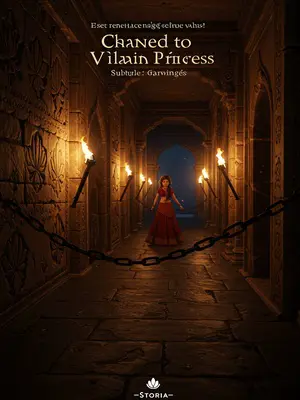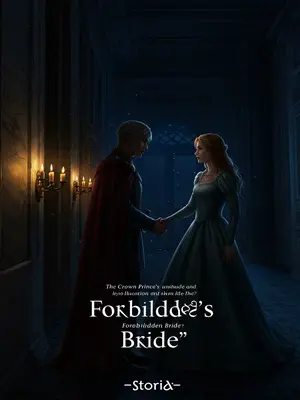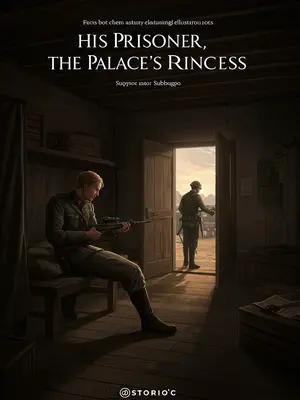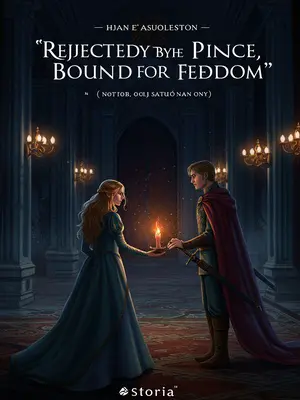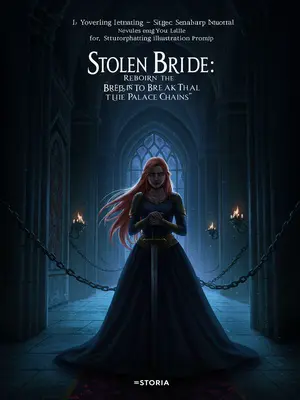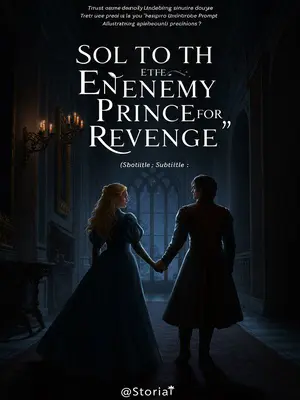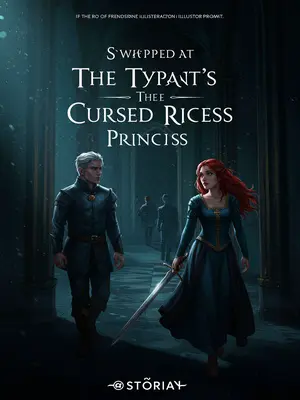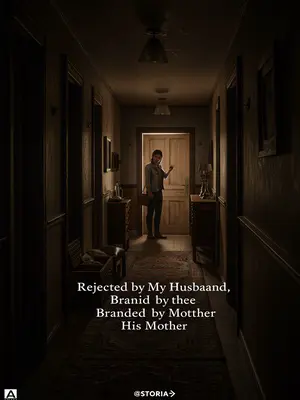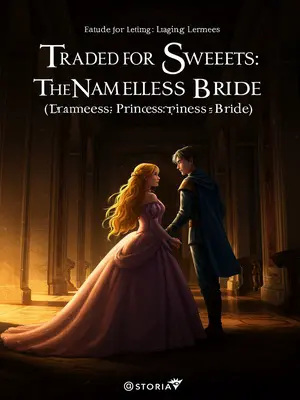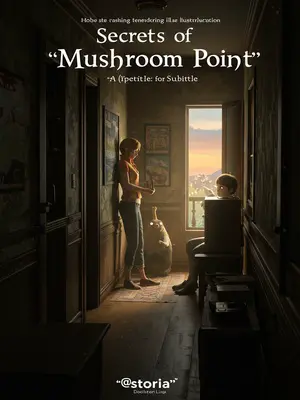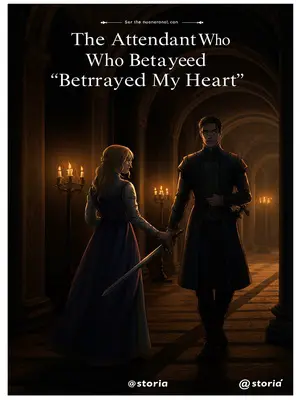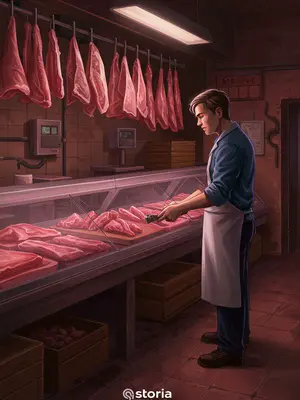Chapter 3: The Vaidya’s Kindness and the Escape
I recovered in the army camp for five days. The wound on my back hadn’t hurt any organs. After it scabbed over, as long as I moved carefully, it wouldn’t split open.
The cot they gave me was hard and narrow, but better than the floor of the cattle shed. The old vaidya visited every morning, his footsteps light as he checked my bandage, murmuring mantras under his breath.
The old vaidya took good care of me.
He spoke in gentle tones, calling me beta, bringing hot water in a battered lota for my bath. Sometimes, he would let me warm my hands over the stove while he prepared medicines for the soldiers.
On the first day, sighing that I was too dirty and smelly, and my clothes couldn’t keep out the cold, he took his best shawl and made a warm cotton jacket for me.
He cut the shawl with a sharp knife, muttering about how a Rajkumari’s child deserved better, even if the world had forgotten. The jacket was patched, but soft and thick, smelling faintly of sandalwood.
Before putting it on me, he heated a bucket of water and carefully washed me from head to toe.
He scrubbed behind my ears, tsking at the layers of dirt. I giggled as he poured warm water over my head, the first time in years I had felt truly clean.
That bucket of clear water, from transparent, turned muddy after washing me.
He stared at the water for a long moment, then shook his head and smiled sadly. "See, beta? Dirt washes away, but not pain."
And my matted hair couldn’t be cleaned no matter what, so he sighed and selectively cut some off.
His scissors snipped gently, careful not to tug. When he was done, my head felt lighter, the cool air prickling my scalp. He ran his hand over my hair and smiled, saying, "Bas, now you look like a proper warrior’s apprentice."
I had never been so clean, nor so warm.
I pulled the jacket close, tucking my knees up like Amma used to show me when it was cold. For a while, I almost forgot the world outside.
The jacket he made for me was really, really warm.
Every stitch was a blessing. I wished Ma could see me now, wished she could feel this warmth for herself.
When he split his roti and gave me half, with a little bowl of watery moong dal, he smiled and asked,
His hands were rough, fingers stained with haldi, but his touch was gentle. He nudged the roti towards me, eyes twinkling.
"How old are you? What’s your name?"
"Eight years old. Ma calls me little bastard, the herdsmen call me little two-legged calf."
I said it simply, not knowing the words could sting so much. His smile faded, the lines around his mouth deepening.
The old man’s face stiffened slightly as he ate the roti. He looked me over from head to toe, his eyes suddenly reddened.
He bit his lip, blinking rapidly. For a moment, I thought he might cry, but he only looked away, swallowing hard.
After a moment, he patted my head.
His hand rested on my hair, heavy and reassuring. It was the first kind touch I’d felt in years.
"I thought you were only five."
He looked at me with such sadness, I wanted to tell him it didn’t matter. Age was just a number; hunger made you smaller anyway.
Then he stuffed his remaining half of the roti into my hand.
I stared at it, surprised. Roti this soft was a rare thing. I hesitated, but he insisted, closing my fingers around it.
"You must be starving, eat more..."
His voice trembled. I nodded, nibbling at the edge. The taste was heavenly—soft, sweet, filling.
After saying that, he covered his eyes and left the tent...
I watched him go, my heart swelling with gratitude. His kindness was a small flame in the dark, something to hold onto.
Roti and moong dal were things I had never eaten before. I only dared to eat a little of the mango pickle with the dal.
I was used to watery gruel and stale rotis. The tang of the pickle made my tongue tingle, and I savoured each bite, chewing slowly to make it last.
I was afraid if I finished it, the old man would have only plain dal left.
I remembered Ma, always giving me her share. I didn’t want to take too much from someone else.
This was the first time I ate what normal people eat. I was very grateful to the old man.
I folded my hands in a silent namaste, whispering a thank you to the gods and to the old vaidya. Maybe goodness still survived in the world.
But in the whole army camp, only the old man looked at me directly.
The others passed by, turning their faces away. I felt their eyes on my blue ones, their fear and suspicion a constant shadow. I kept my gaze low, trying not to draw attention.
Everyone else, when they saw my blue eyes, would frown fiercely, wishing they could stab my throat with their spears.
I heard their mutters, the words they used—bhootni, dayan. Even the kitchen boys would cross themselves, touching their amulets for protection. I learned to shrink into corners, invisible as dust.
I didn’t want to create a scene for the old man.
I owed him too much already. I tried to be quiet, helpful, folding his blankets, fetching water when he asked.
And I should go look for Ma.
Every night, my thoughts returned to her. I imagined her alone, shivering in the dark, calling out for me. The ache was unbearable.
So in the following days, every night I would secretly sneak out of the tent, trying to escape back to the grassland.
I would wait until the guards dozed off, then slip out under the edge of the tent, my footsteps silent as a cat’s. The cold bit at my heels, but I didn’t care. Home was always in the direction of Ma.
But every time, I was caught by the Fifth Yuvraj.
His shadow would loom behind me, his hand clamping on my shoulder. His eyes glinted in the moonlight, hard as flint. "Kahan jaa rahi hai, chori?" he would hiss, marching me back to the tent.
Because of this, he discovered something.
One night, as I navigated the darkness, he stared at me, suspicion dawning in his eyes. He watched the way I moved, never stumbling, never tripping over the tent ropes.
"You can see at night?"
His voice was sharp, demanding. I flinched, curling into myself, unsure if telling the truth was safe.
I didn’t answer him, squatting in the corner, burying my head in my knees.
I squeezed my eyes shut, willing him to go away. My breath came in short, panicked bursts.
He snorted coldly, pointing his spear at my head.
The cold metal brushed my scalp, sending a shiver down my spine. I felt the threat in his gesture, the warning loud and clear.
"Don’t let anyone find out about this, or you’ll surely die. No one can save you."
His words were low, almost a growl. I nodded mutely, promising myself never to mention it again.
I didn’t understand.
I didn’t know why it mattered. I only wanted to find Ma, to go home.
But Ma did warn me not to tell anyone I could see at night.
Her voice echoed in my mind, serious and urgent: "Kabhi kisi ko mat batana, samjhi? Na din, na raat. Yeh duniya sab kuch maaf kar deti hai, par alag ko nahi."
I hated the Fifth Yuvraj. Since he couldn’t save my Ma, why wouldn’t he let me go back?
I glared at his retreating back, wishing him all the misfortune I could think of. He was strong, brave—he could have helped, but he chose not to. That hurt most of all.
Ma must be very lonely alone in the cattle shed.
Every night, I whispered to her in my dreams, hoping my words would reach her across the grassland.
The old vaidya liked me a lot.
He called me his little assistant, teaching me how to grind herbs, boil decoctions, and tie bandages. Sometimes he would give me a piece of jaggery for doing well, his eyes crinkling with pride.
When there were no wounded, he would take me to identify medicinal plants.
We would wander outside the camp, baskets in hand, picking neem leaves, tulsi, and amla. He showed me how to test roots, how to smell the difference between good and bad herbs. I loved those moments—the world felt less harsh among the plants.
He taught me the properties of herbs.
He would quiz me: "Haldi for wounds, neem for fever, amla for strength. Remember, Niranjan, the earth gives us what we need." I repeated the names back to him, determined not to forget.
I asked him if there was any medicine to cure blindness.
The question hung between us like a prayer. My hope was fragile, barely alive.
After asking about my Ma’s situation, he shook his head sadly.
He looked down, his voice gentle. "Beta, kuch cheezein dawai se nahi sudharti. Rab ki marzi hai."
"If someone’s eyes have been stabbed blind, there’s no cure."
The words crashed over me, final and merciless. I clenched my fists, fighting the urge to scream.
"Then what’s the point of learning these herbs? I don’t want to learn anymore."
I threw the basket to the ground, the leaves scattering like broken dreams. I turned and ran, not caring where my feet took me.
I ran out of the tent and went to the training ground to watch the Fifth Yuvraj drill the soldiers from the plains.
The clang of metal and the grunts of effort filled the air. The soldiers moved in tight formation, sweat glistening on their brows, their shouts ringing out in rhythm. I watched from behind a cart, spellbound.
They held spears, their eyes sharp and determined like eagles, every move full of fierce effort.
Their steps pounded the earth in unison, dust rising in little clouds. The spears flashed like sugarcane stalks in the sun, each movement precise and lethal. Their sandals kicked up clouds of red dust.
They were also thin and weak, very different from the strong, well-fed men on the grassland who rode horses and swung curved swords.
Their uniforms were patched, their faces gaunt, but their spirit burned bright. I compared them to the herdsmen—bigger, louder, more brutal. Yet, these soldiers moved with a silent discipline that both awed and frightened me.
I instinctively felt they couldn’t win.
Somewhere in my gut, I knew. But watching them, I wanted to believe courage mattered more than strength.
But I envied them.
They had purpose, pride, a cause to fight for. I wished I belonged somewhere, anywhere, like that.
I imagined that I could also hold a spear and wave it as fiercely as they did.
In my mind, I saw myself among them, feet planted, spear raised. Maybe then, Ma would be proud.
Then stab to death all the men who bullied Ma, and have the horses trample their corpses into mush...
My hands clenched around the stick I carried. I imagined the invaders’ faces contorted in fear, Ma free at last, her chain broken.
So I picked up a stick and unconsciously followed their movements.
I swung the stick overhead, mimicking their steps, trying to copy every movement. Sweat trickled down my brow, my arms aching with effort.
But the Fifth Yuvraj saw me and kicked me over.
His boot caught me in the ribs, knocking the breath out of me. I gasped, tumbling into the dust.
"Want to learn our moves and go back to tell your people?"
His voice was sharp, dripping with suspicion. He glared down at me, eyes hard.
He looked down at me, his eyes full of disgust.
His lips curled. I looked away, ashamed.
"Sapne dekhna band kar."
The words were final, crushing any hope I had left. He turned away, barking orders at the soldiers.
The soldiers on the field weren’t affected at all, still swinging their spears with great force.
They didn’t even spare me a glance, their focus unbroken. I lay there, feeling smaller than ever.
I lay on the ground, the pebbles in the grass poking my palm and hurting.
I pressed my face to the earth, blinking back tears. The sting of humiliation mixed with the ache in my chest.
But not as much as the pain in my heart.
My heart thudded painfully, the memory of Ma’s scorn and the Yuvraj’s cruelty pressing down on me. I bit my lip, refusing to cry.
The old vaidya watched me from the tent for a long time, then shook his head with a smile. After pulling me back, he personally carved me a wooden sword.
He sat cross-legged by the fire, whittling the wood with a small knife. Chips flew, the scent of sandalwood filling the air. When he finished, he handed it to me with a flourish, pride shining in his eyes.
"If you can remember all the herbs I teach you, I’ll teach you swordsmanship. It’s different from theirs, but more suitable for you."
His words were soft, but his gaze was serious. He showed me a few steps, slow and deliberate, his movements graceful as a dancer’s.
Holding the light little sword, I imagined stabbing the herdsman couple in the throat.
I pictured the fear in their eyes, the triumph in my own. For a moment, I felt powerful, invincible.
"I’ll learn..."
My voice was fierce, determined. I would do anything to protect Ma, to take back what was stolen from us.
The old man smiled slightly, flipped through some books, and gave me the name "Niranjan."
He drew a red tilak on my forehead, murmuring a shloka as he named me Niranjan. He told me it meant "the one who cannot be tainted, pure." He placed his hand on my head, chanting a shloka I didn’t understand. For the first time, I felt like I belonged to something.
"Your identity is special, not accepted by the world. Take me as your guru and walk the path with me."
His words warmed me. I nodded, vowing to be worthy of his trust, whatever it meant.
I didn’t understand his words, but as long as I could practise swordsmanship, I was willing.
I gripped the wooden sword tightly, excitement thrumming in my veins.
...
After that, for a month, I studied medicine during the day and practised swordsmanship at night.
My hands grew callused, my mind sharper. The days blurred together, each one brighter than the last. I almost forgot the ache in my heart.
Gradually, I discovered a problem.
My progress was slow. No matter how hard I tried, my movements were clumsy, my memory faltered.
"Guruji, swordsmanship is so hard. When can I be like you and develop inner strength?"
I watched him practise, his movements effortless. I wanted to be strong, unstoppable, like the heroes in Ma’s stories.
Guruji smiled.
He patted my head, his eyes gentle. "Sabra karo, beta. Sab kuch samay se milta hai."
"Martial arts require years of effort. The more anxious you are, the harder it is to learn."
His words were calm, but I felt frustration rise inside me. Ma didn’t have years. I didn’t have years.
I pressed my lips together, gripping the wooden sword tighter and tighter.
I ground my teeth, trying to will strength into my thin arms. The sword felt heavy, hope heavier still.
Ma can’t wait.
Every night, her face haunted my dreams. Her chain, her cries, her loneliness—it was all too much.
Those disgusting invaders can’t wait either...
I saw their faces, their cruel laughter. The thought of Ma suffering another day was unbearable.
So, one night when everyone let down their guard, I sneaked out of the army camp and escaped back to the grassland.
I packed my little sword, a pouch of herbs Guruji had given me, and waited for the guard to doze. I slipped away into the night, my heart pounding with fear and hope.
This time, I succeeded.
The scent of wet earth clung to me as I slipped away, the first drops of rain pricking my skin. The wind was with me, the moon hidden behind clouds. I ran fast, dodging patrols, my feet barely touching the earth. The grassland opened up before me, wild and endless.
